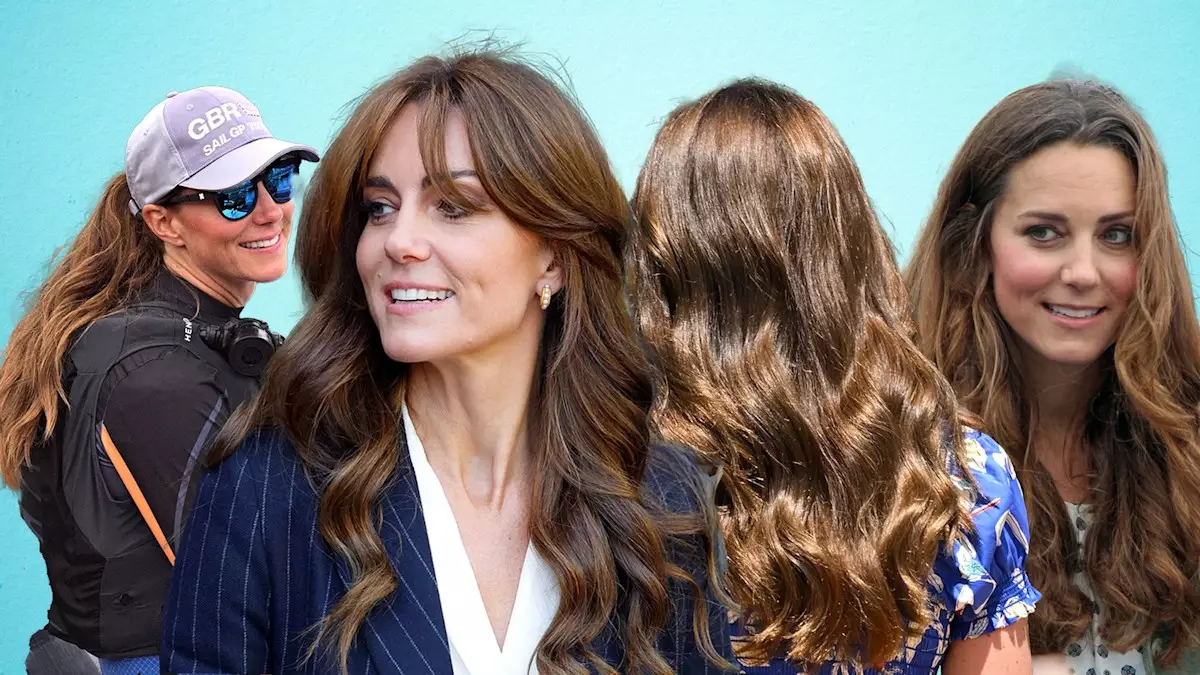The Princess of Wales has become synonymous with elegant beauty, particularly when it comes to her stunning hair. Often admired for its smoothness and volume, her hair serves as an inspiration for many. However, there is a persistent debate surrounding whether her enviable locks are entirely natural or if they are accentuated with hair extensions. This topic has garnered the attention of hairstylists and beauty experts alike, indicating that the quest for understanding her hair secrets is more than just idle curiosity.
Notable figures in the hairstyling world have taken different stances on the matter. For instance, Chris Appleton, famous for his work with celebrities like Kim Kardashian, firmly asserts that the Princess’s hair is all her own. He bases his opinion on the natural appearance of her hair, particularly its ends. This perspective stands in stark contrast to that of Olia Cutz, the founder of a hair extension company, who suggests that the Princess could be using subtle extensions like tape-ins or keratin bonds. Her viewpoint emphasizes the possibility that high-quality extensions can be nearly indistinguishable from natural hair, enabling a fuller look without compromising authenticity.
Nourishment plays a pivotal role in attaining beautiful hair, and Registered Nutritional Therapist Lucia Stansbie emphasizes how diet can directly affect hair quality. Foods rich in vitamins and nutrients, particularly those that support collagen production, are essential for promoting healthy hair. Lucia posits that incorporating vitamin C into one’s diet can significantly enhance hair vitality, suggesting sources like oranges and strawberries. This insight highlights the validity of “you are what you eat” not only in terms of overall health but also in relation to the hair’s texture and appearance.
While a balanced diet is advantageous, it is crucial to recognize that not all hair issues stem from nutritional deficits. Hormonal imbalances can greatly contribute to hair loss and thinning, a point that Lucia emphasizes. Conditions such as Polycystic Ovary Syndrome (PCOS) and postpartum hair loss are largely influenced by shifts in hormone levels. Symptoms associated with these changes can be telling, and addressing them often requires a multifaceted approach that may include dietary adjustments alongside medical intervention. For women experiencing hair challenges during menopause, sticking to a protein-rich diet can bolster hair strength and shine.
The allure of the Princess of Wales’ hair is not merely a matter of external styling; it reflects a deeper interplay of genetics, nutrition, and hormonal balance. While the debate over hair extensions may continue, it is clear that the foundation of beautiful hair lies in a holistic approach that encompasses a nutritious diet and, when necessary, addressing hormonal health. Ultimately, embracing this comprehensive perspective can empower individuals in their journey toward achieving hair that is as radiant as that of royalty.

